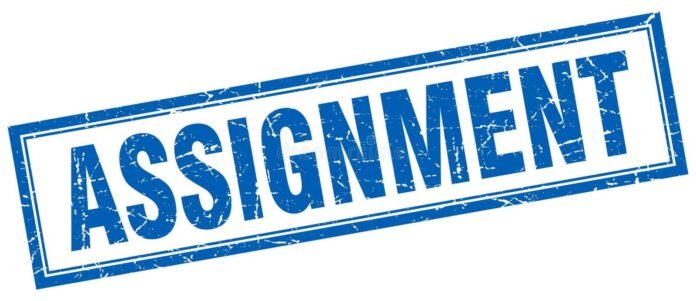Plagiarism is a serious academic offense that can jeopardize your academic integrity, grades, and future prospects. For students in the UK, where universities uphold stringent academic standards, delivering plagiarism-free assignments is crucial. This guide outlines the best practices to ensure your work maintains originality and adheres to academic ethics.
What is Plagiarism and Why is it Important to Avoid It?
Plagiarism is the act of using someone else’s work, ideas, or words without proper acknowledgment. It can range from copying text directly to paraphrasing without citing the source. UK universities emphasize originality in student assignments, making it essential to avoid any form of plagiarism.
Consequences of Plagiarism in UK Universities
- Academic Penalties: Students can face reduced grades, failed assignments, or even expulsion.
- Loss of Reputation: A record of plagiarism can tarnish your academic and professional reputation.
- Legal Repercussions: In severe cases, plagiarism can result in legal actions if copyrighted material is used without permission.
Best Practices for Writing Plagiarism-Free Assignments
1. Understand Your Assignment Requirements
Before starting, ensure you thoroughly understand the assignment brief. Misinterpreting requirements can lead to unintentional plagiarism.
- Tips:
- Clarify doubts with your instructor.
- Focus on creating a structured outline that aligns with the assignment guidelines.
2. Conduct Comprehensive Research
Research is the foundation of any academic work. Use reliable sources such as journals, books, and credible online resources to gather information.
- Avoid:
- Using unverified websites or blogs that lack academic credibility.
- Over-relying on a single source for your information.
3. Use Proper Citation Styles
Citations are crucial for acknowledging the original authors of ideas or quotes. UK universities often require citation formats like Harvard, APA, or MLA.
- Tips for Proper Citations:
- Use tools like Zotero or EndNote to manage citations.
- Double-check your references against the university’s required format.
How to Paraphrase Effectively Without Plagiarizing
Paraphrasing involves rewriting information in your own words while maintaining the original meaning. However, improper paraphrasing can still result in plagiarism.
- Steps for Effective Paraphrasing:
- Read the original text carefully to understand its meaning.
- Rewrite it using your own sentence structure and vocabulary.
- Cite the source even when paraphrased.
Use Plagiarism Detection Tools
Before submitting your assignment, run it through plagiarism detection software. Many universities provide access to tools like Turnitin or SafeAssign.
- Benefits:
- Identifies unintentional similarities with existing content.
- Allows you to revise and ensure originality.
How Time Management Helps Prevent Plagiarism
Procrastination often leads to last-minute writing, increasing the risk of copying content to meet deadlines. Managing your time effectively ensures you have adequate time for research, writing, and revising.
- Time Management Tips:
- Break your assignment into smaller tasks with specific deadlines.
- Allocate time for proofreading and checking plagiarism before submission.
Collaborate Responsibly in Group Assignments
Group assignments require collaboration, which can sometimes lead to duplicated content. To avoid this:
- Assign specific roles to each member.
- Combine and edit content collaboratively to ensure a unified tone and originality.
Leverage Assignment Help Services
If you’re struggling with your assignments, consider using professional academic assistance to ensure your work meets UK university standards. Reliable services like MBA Assignment Help in UK provide plagiarism-free solutions tailored to specific requirements.
Ethical Use of Online Resources
While online resources are invaluable, ethical usage is key to avoiding plagiarism. Always cross-reference information and cite online sources properly.
- Best Practices:
- Avoid copying directly from online materials.
- Use academic databases like JSTOR or Google Scholar for reliable references.
Importance of Original Thought in Assignments
While citing sources is crucial, adding your own analysis, interpretations, and perspectives demonstrates originality and critical thinking skills.
- How to Add Originality:
- Evaluate the source material critically.
- Provide unique insights or alternative viewpoints.
Proofreading and Peer Review
After completing your assignment, proofreading helps identify errors or unintentional plagiarism. Sharing your work with peers for feedback can also enhance its quality.
- Checklist for Proofreading:
- Verify all citations and references.
- Check for grammatical errors and sentence structure.
University Policies on Plagiarism
Understanding your university’s policies on plagiarism is essential. These guidelines detail acceptable academic practices and penalties for violations.
- Where to Find Policies:
- Check your university’s student handbook or academic integrity portal.
- Attend workshops or sessions on plagiarism prevention.
Assignment Writing Tools to Enhance Originality
Several tools can streamline your writing process and ensure originality:
- Grammarly: Checks grammar and suggests improvements.
- QuillBot: Assists with paraphrasing while maintaining originality.
- Turnitin: Detects plagiarism and provides similarity reports.
Seek Professional Assignment Help Responsibly
Professional academic services can be a valuable resource for students balancing tight schedules. Platforms like Assignment Help UK ensure assignments adhere to university standards and are plagiarism-free.
FAQs on Plagiarism-Free Assignments
1. What is the easiest way to avoid plagiarism in assignments?
Always cite your sources and use plagiarism detection tools before submission.
2. Can I use online content for my assignments?
Yes, but ensure it is from credible sources and properly cited.
3. Is paraphrasing considered plagiarism?
Not if done correctly with proper citations.
4. What happens if my assignment has plagiarism?
Penalties vary but can include reduced grades, assignment rejection, or disciplinary action.
5. Are plagiarism checkers reliable?
Yes, tools like Turnitin and SafeAssign are widely trusted in academia.
Delivering plagiarism-free assignments requires discipline, critical thinking, and adherence to ethical practices. By following these best practices, UK students can uphold academic integrity while producing high-quality work.



